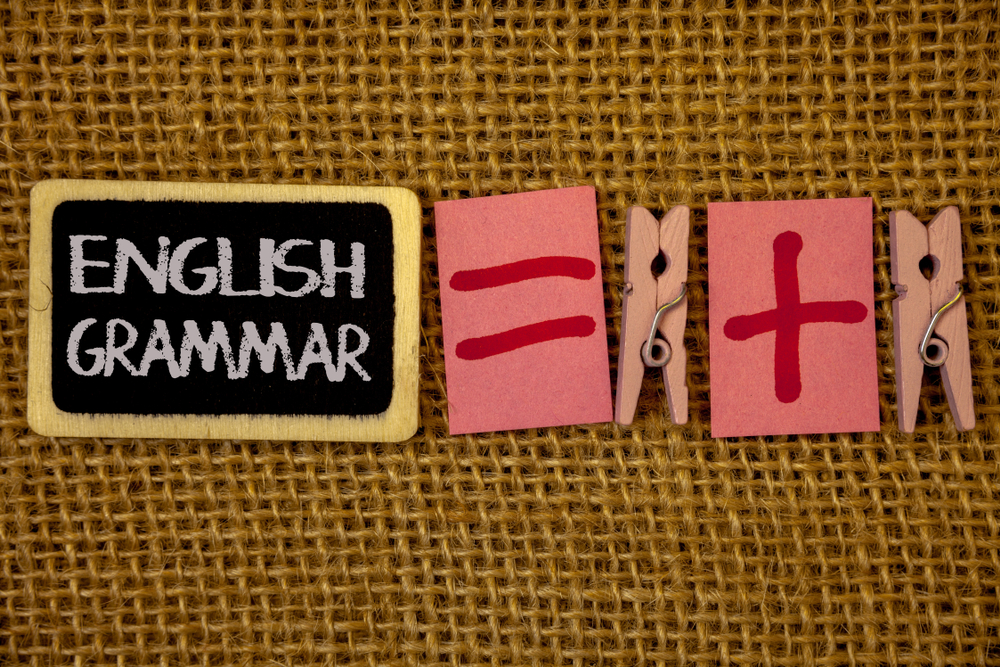Understanding equations Worksheets for Ages 4-7
8 filtered results
-
From - To
Discover our engaging "Understanding Equations Worksheets" designed specifically for ages 4-7! These worksheets are perfect for helping young learners grasp fundamental math concepts through fun and interactive exercises. Using colorful visuals and age-appropriate problems, children will explore simple equations and develop their problem-solving skills. Each worksheet encourages critical thinking and fosters a love for learning, making math accessible and enjoyable. Ideal for both classroom settings and at-home practice, these resources aim to build confidence in young mathematicians. Explore our collection today and watch your child thrive as they embark on their math journey!
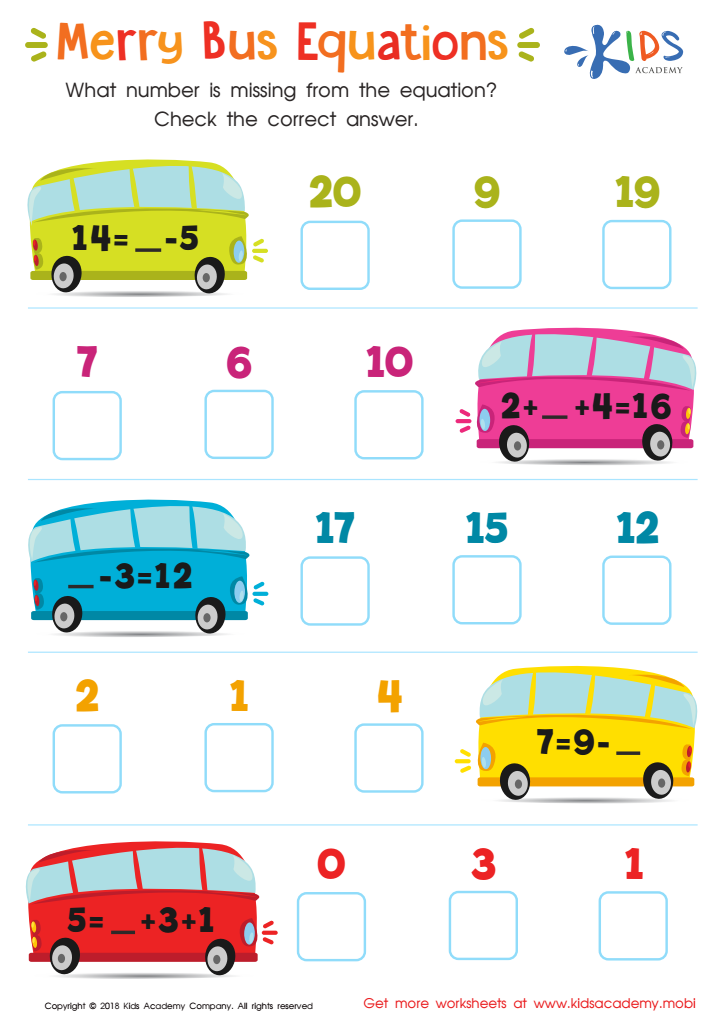

Merry Bus Equations Worksheet
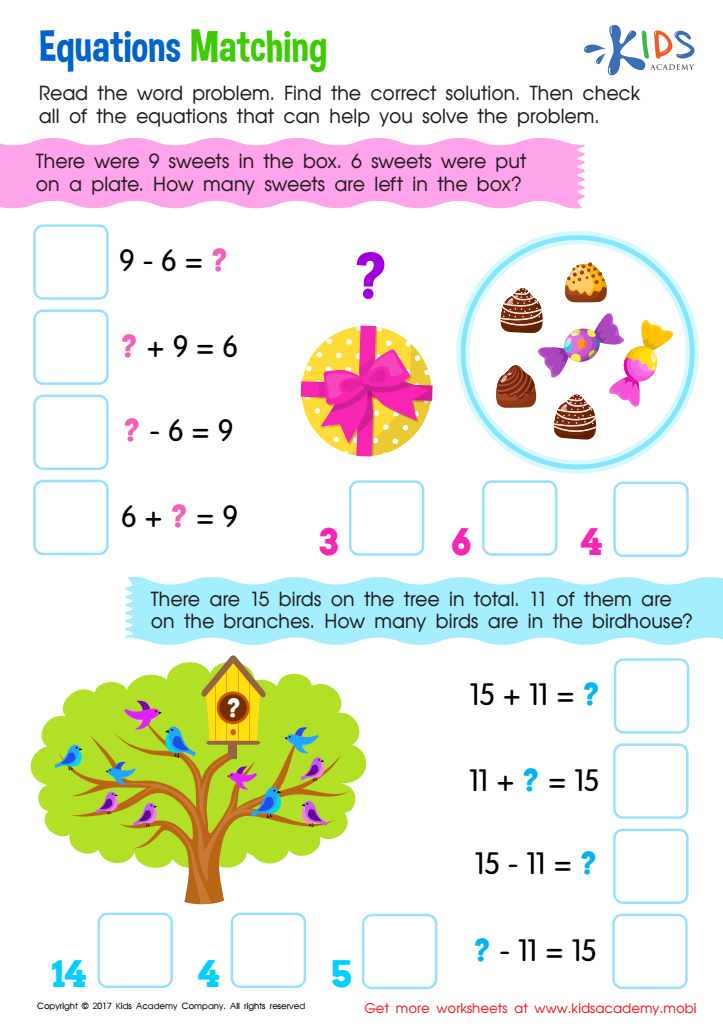

Equations Matching Word Problems Worksheet
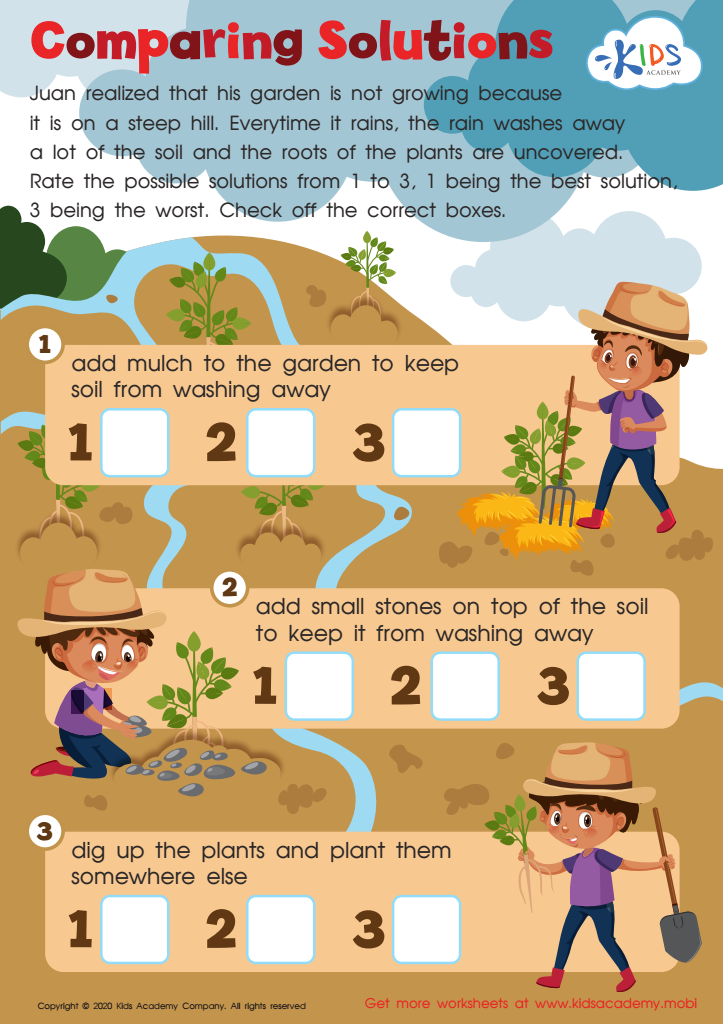

Comparing Solutions Worksheet
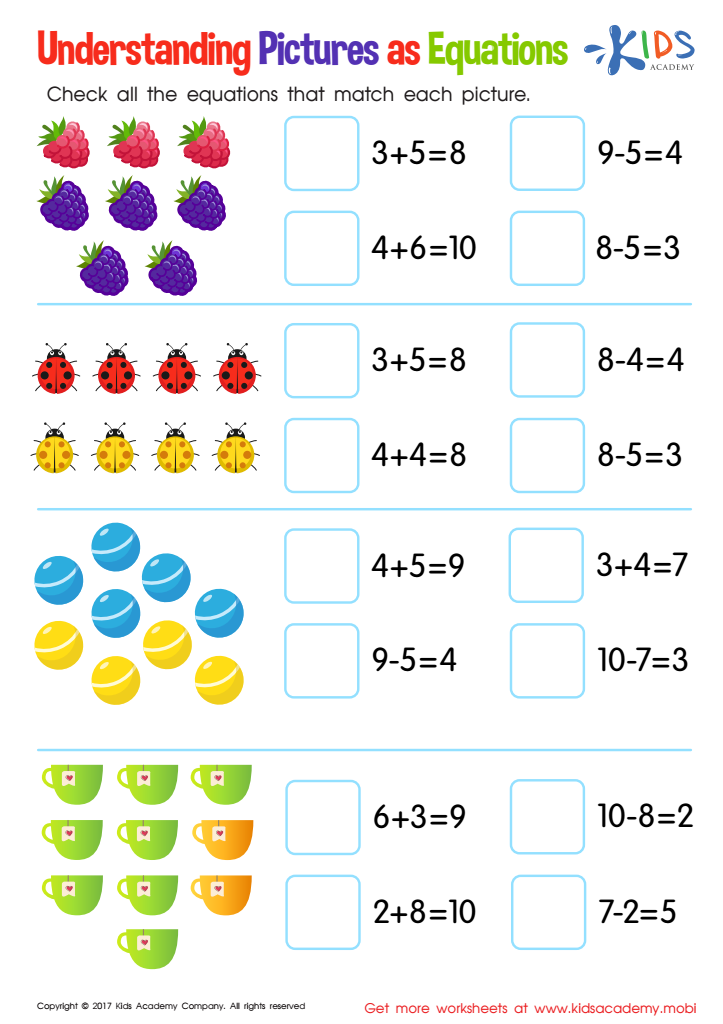

Understanding Pictures as Equations Worksheet
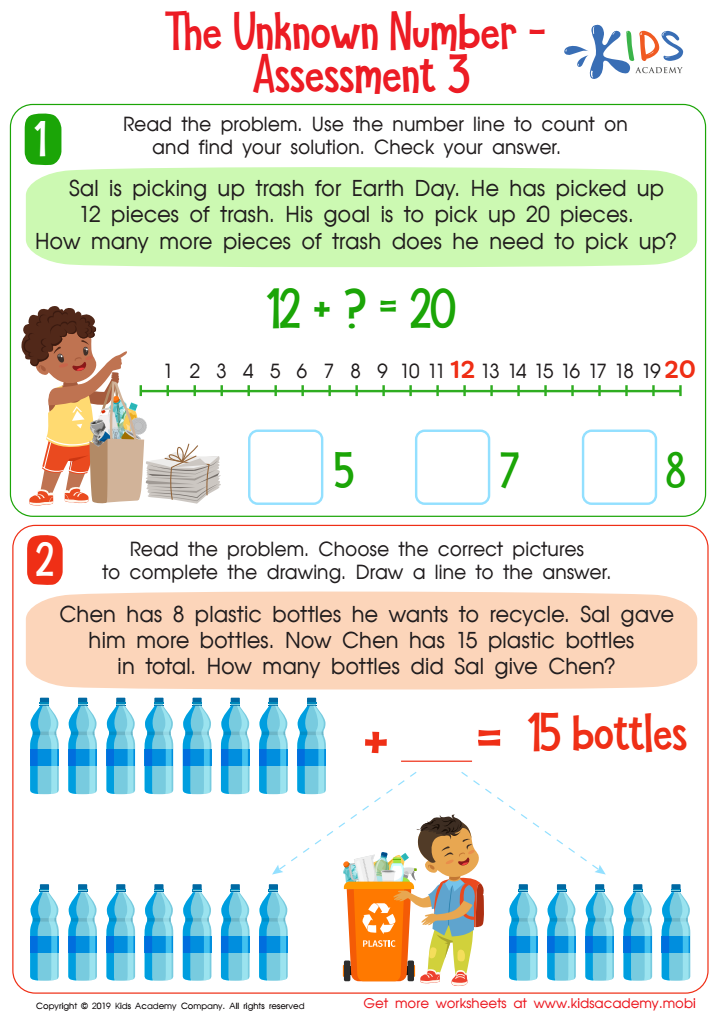

The Unknown Number - Assessment 3 Worksheet
Understanding equations is crucial for children aged 4-7, as this foundational skill paves the way for future mathematical learning and problem-solving abilities. At this stage, children are naturally curious and eager to explore concepts related to numbers and relationships. By engaging with simple equations, they begin to grasp the idea of equality and the operations that link numbers, which fosters logical thinking and critical reasoning.
Parents and teachers should care because this understanding encourages children to develop resilience and confidence in mathematics. It shifts their perception from viewing math as merely rote memorization to seeing it as a means of discovery and exploration. Interacting with equations also supports language development, as children learn to articulate their thought processes while they solve problems.
Additionally, early algebraic concepts form a basis for more complex mathematical operations required in later grades. When children learn to recognize patterns and relationships in simple equations, they build essential skills that will assist them in integer operations, geometry, and even data interpretation down the road. Ultimately, fostering a solid understanding of equations from a young age equips children with the tools they need for academic success and everyday problem-solving throughout their lives.

 Assign to My Students
Assign to My Students






.jpg)
